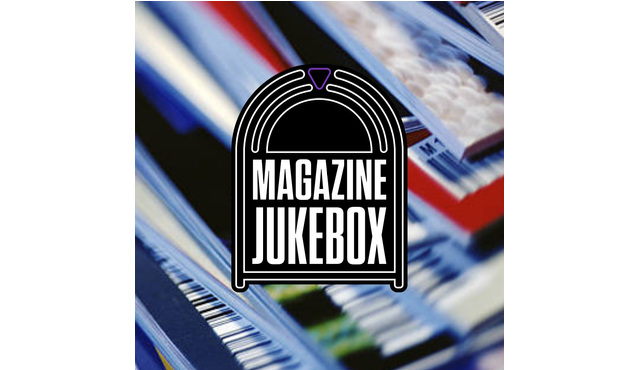From Richmond Inno By Dina Weinstein

Norfolk’s Magazine Jukebox has raised a $750K funding round.
The Virginia Innovation Partnership Corp.’s equity investment arm has invested $25,000 into a Norfolk company that offers a “digital magazine rack” where people can access periodicals through their smartphones in commercial spaces. The investment is part of a larger $750,000 seed round for Magazine Jukebox.
The company’s digital rack is a service provided via QR codes that lead to around a dozen titles to read or browse. The codes are typically displayed on a table tent, sticker, or sign on a hotel nightstand or in lobbies, waiting rooms, gyms, or poolside lounges.
Janney said the seed round will help him scale his business, specifically hiring more staff to beef up Magazine Jukebox’s organizational growth, customer service, and marketing, including television advertising.
“We’ve raised what we needed and now we’re going to go into a bridge round of $1 million to raise the capital that we need to truly scale this company,” said Magazine Jukebox co-founder and CEO Scott T. Janney, who added that the state gave him indications of more support to come.
The idea for Magazine Jukebox started when Janney and his wife, Lauren, wanted to start a coffee shop with a Barnes & Noble vibe in August 2020, but the Covid-19 pandemic nixed the appeal of shared spaces. Reading material touched by many hands became deemed unhygienic.
“We started doing some research and realized that there really were no other competitors out there that were offering a digital magazine rack in commercial spaces without having to download an app or get personal information,” said Janney, who for years has been a voracious magazine consumer.
Since that idea stage, Janney has submitted a patent for the company’s technology, submitted a trademark for the company name, created Magazine Jukebox’s own virtual private network, and went live on Jan. 3. Magazine Jukebox is now in more than a thousand locations from medical offices to hair salons to car dealerships and growing, Janney said.

Scott Janney is the co-founder and CEO of Magazine Jukebox.
Janney said the company has multiple revenue sources from its platform. Proprietors pay for a subscription service which ranges from $8 to $20 a month, depending on the size of the location, with specific QR codes assigned to each site that can only work within their facilities. When someone scans a code, they can leave with the magazine for up to 36 hours so they can take it home and finish reading the magazine. Magazine Jukebox also sells targeted advertisements.
“If they want to advertise specifically in hotels on the East Coast, for example, we can handle that,” said Janney. “If an advertiser wants to advertise in a hospital or a doctor’s office, we can handle that.”
Janney believes Magazine Jukebox is a billion-dollar idea. He said he has contracts coming up in the timeshare and Airbnb industry and car-charging stations. Besides the privacy and hygienic advantages of Magazine Jukebox, Janney, who has invested $150,000 of his own money plus his time without pay, said the company, which is not yet profitable, is ecological and promotes reading with eight to 12 titles per business.
A challenge for the company is reaching decision-makers at potential companies in Magazine Jukebox’s target customer base, to convince them to prioritize magazines in the digital form for their customers, Janney said.






